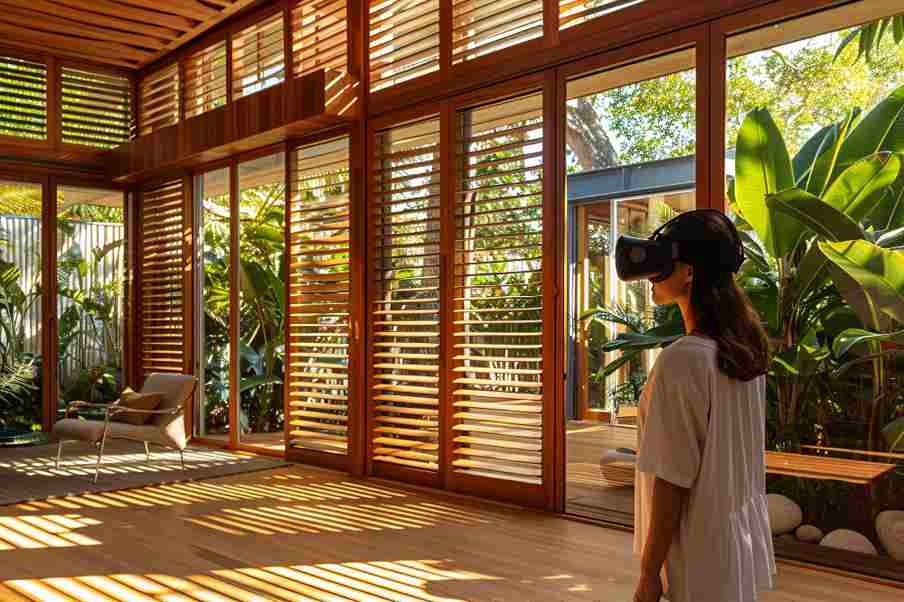Key Takeaways:
- Mobile home windows are essential for comfort, energy efficiency, and home value.
- Choosing the right window type and material can dramatically improve insulation, security, and aesthetics.
- Regular maintenance and timely replacement prevent costly issues and enhance your living experience.
- Energy-efficient windows offer long-term savings and environmental benefits.
- Customization options allow you to match your windows to your style and needs.
Introduction to Mobile Home Windows
Have you ever wondered how much of a difference the right windows can make in your mobile home? Whether you’re looking to boost energy efficiency, update your home’s look, or simply replace aging windows, understanding the unique needs of mobile home windows is crucial.
Mobile homes, also known as manufactured homes, have distinct construction features compared to site-built houses. Their windows must be lightweight, easy to install, and durable enough to withstand transportation and the elements. Unlike traditional homes, mobile home windows often come in standardized sizes and are made from materials that balance cost, weight, and performance .
In this comprehensive guide, you’ll learn about the different types of mobile home windows, the best materials for your climate and budget, signs it’s time for a replacement, and how to maintain your investment for years to come. We’ll also explore energy efficiency, customization options, and answer the most frequently asked questions. Let’s get started on transforming your mobile home with the right windows!
1. Understanding Mobile Home Windows
What Are Mobile Home Windows?
Mobile home windows are specifically designed for manufactured and modular homes. Their primary functions include:
- Allowing natural light into the home
- Providing ventilation and airflow
- Enhancing security
- Adding to the home’s curb appeal and interior aesthetics
Key Differences from Site-Built Home Windows
- Standard Sizes: Mobile home windows are typically available in a limited range of standard sizes, such as 30”x60”, 36”x54”, and 36”x60” . This standardization simplifies installation and replacement.
- Materials: Common materials include aluminum, uPVC, light steel, and vinyl. These are chosen for their lightweight properties, durability, and cost-effectiveness .
- Design Priorities: Mobile home windows are engineered for easy installation, removal, and transport. They must be lightweight yet sturdy, and often feature mounting flanges to fit the thinner walls of mobile homes .
Why Choosing the Right Window Matters
Selecting the right windows impacts:
- Comfort: Properly insulated windows keep your home warm in winter and cool in summer.
- Energy Efficiency: Modern windows reduce energy loss, lowering utility bills .
- Home Value: Upgraded windows enhance curb appeal and can increase resale value.
2. Types of Mobile Home Windows
Overview of Popular Styles
Sliding Windows:
These windows move horizontally along a track, making them space-saving and easy to operate. They’re affordable and ideal for living rooms and bedrooms .
Single-Hung & Double-Hung Windows:
- Single-hung windows have a fixed top sash and a movable bottom sash, making them simple and cost-effective.
- Double-hung windows allow both sashes to move, offering better ventilation and easier cleaning .
Awning Windows:
Hinged at the top and opening outward, awning windows are perfect for bathrooms and kitchens, providing ventilation even during rain .
Casement Windows:
These windows open outward with a crank, offering unobstructed views and excellent airflow. They’re great for living areas but require exterior clearance .
Jalousie Windows:
Made of horizontal glass slats that open like blinds, jalousie windows provide maximum airflow but are less energy-efficient. They’re often used in sunrooms or porches .
Picture Windows:
Fixed and non-operable, picture windows maximize natural light and offer panoramic views. They’re highly energy-efficient but don’t provide ventilation .
Bay Windows:
Protruding from the home’s exterior, bay windows add depth, natural light, and create cozy interior nooks. They’re ideal for living rooms and kitchens .
Gas Strut Windows:
A modern option, these windows use gas struts for smooth operation and are popular in kitchens for seamless indoor-outdoor connections .
Comparative Table: Window Types for Mobile Homes
| Window Type | Key Features | Best For |
|---|---|---|
| Sliding | Space-saving, affordable | Living rooms, bedrooms |
| Single-Hung | Simple, affordable, easy to clean | Small spaces |
| Double-Hung | Ventilation, easy maintenance | Most rooms |
| Awning | Weather-resistant, ventilation | Bathrooms, kitchens |
| Casement | Full opening, clear views | Living areas |
| Jalousie | Maximum airflow | Porches, sunrooms |
| Picture | Fixed, panoramic views | Living/dining rooms |
| Bay | Adds space, aesthetic appeal | Living rooms, kitchens |
| Gas Strut | Modern, connects spaces | Kitchens, patios |
3. Materials Used in Mobile Home Windows
Aluminum
- Pros: Lightweight, durable, and cost-effective. Aluminum frames are strong and can withstand harsh weather .
- Cons: Poor insulation compared to other materials, which can lead to higher energy costs. Requires regular maintenance to prevent corrosion.
UPVC (Unplasticized Polyvinyl Chloride)
- Pros: Highly energy-efficient, low maintenance, and affordable. uPVC resists rot and doesn’t require painting .
- Cons: May discolor or become brittle over time, especially with prolonged UV exposure.
Vinyl
- Pros: Excellent insulation, weather-resistant, and easy to care for. Vinyl windows are popular for their energy efficiency and low upkeep .
- Cons: Can warp in extreme heat and offer limited color options.
Light Steel
- Pros: Strong and secure, making them suitable for specific modular designs .
- Cons: Heavier and less common in residential applications. Steel can be prone to rust if not properly treated.
Comparing Materials Table
| Material | Pros | Cons |
|---|---|---|
| Aluminum | Lightweight, durable | Poor insulation |
| uPVC | Energy-efficient, affordable | May discolor over time |
| Vinyl | Great insulation, low upkeep | Can warp in extreme heat |
| Light Steel | Strong, secure | Heavier, less common |
4. Signs You Need to Replace Mobile Home Windows
Common Warning Signs
- Drafts and Increased Energy Bills: If you feel drafts or notice a spike in heating/cooling costs, your windows may be leaking air .
- Difficulty Opening or Closing: Warped frames or worn hardware can make windows hard to operate .
- Condensation or Fog Between Panes: This indicates a broken seal and loss of insulating gas .
- Visible Damage: Cracks, warping, or rot in the frame or glass are clear signs it’s time for replacement .
- Outdated Single-Pane Windows: Older windows lack the insulation and security of modern double- or triple-pane options .
Why Timely Replacement Matters
Replacing windows promptly prevents further damage to your home, improves comfort, and can save you money on energy bills. Delaying replacement can lead to water damage, mold, and higher repair costs .
5. Benefits of Upgrading Mobile Home Windows
Energy Efficiency
Modern mobile home windows with double or triple glazing, low-E coatings, and insulated frames significantly reduce heat loss in winter and heat gain in summer. This leads to lower energy bills and a more comfortable home .
Enhanced Security
Upgraded windows feature stronger frames, improved locks, and shatter-resistant glass, making your home safer from break-ins and accidents .
Aesthetic Improvements
New windows can transform your home’s appearance, boosting curb appeal, brightening interiors, and increasing resale value .
Comfort and Noise Reduction
Better insulation means less outside noise and more consistent indoor temperatures. Many modern windows also offer UV protection to prevent fading of furniture and flooring .
Environmental Impact
Energy-efficient windows reduce your home’s carbon footprint by lowering energy consumption. Many are made from eco-friendly or recyclable materials .
6. Mobile Home Window Replacement: Step-by-Step Guide
When to Replace vs. Repair
- Replace: If windows are severely damaged, drafty, or outdated, replacement is the best option.
- Repair: Minor issues like worn weatherstripping or hardware can often be fixed without full replacement .
Preparation
- Measure Openings: Accurate measurements are crucial. Measure the width and height of the window opening from inside the frame .
- Choose Size and Style: Select a window that matches your opening and desired features.
Removal of Old Windows
- Remove interior and exterior trim carefully.
- Unscrew the old window frame and gently remove the window, avoiding damage to the wall .
Installing New Windows
- Apply putty tape or sealant around the opening for weatherproofing.
- Insert the new window, ensuring it’s level and square.
- Secure the frame with screws, following manufacturer instructions .
Finishing Touches
- Reinstall trim and check that the window opens and closes smoothly.
- Inspect for gaps and apply additional sealant if needed.
DIY vs. Professional Installation
- DIY: Can save money if you have the skills and tools, but mistakes can lead to leaks or poor insulation.
- Professional: Recommended for complex installations or if you’re unsure about the process. Professionals ensure proper fit, sealing, and compliance with safety codes .
7. Cost of Mobile Home Window Replacement
Average Costs
- Per Window: $250–$700 installed, depending on size, material, and features .
- Full Home: $1,500–$8,400 for 6–12 windows, including labor .
Factors Affecting Cost
- Materials: Vinyl is generally less expensive than aluminum or steel.
- Labor: Professional installation adds to the cost but ensures quality.
- Window Type: Custom shapes, bay windows, and energy-efficient models cost more.
- Home Size: Larger homes require more windows and higher total investment .
Budgeting Tips
- Prioritize replacing windows in key rooms first.
- Factor in potential energy savings when evaluating costs.
- Get multiple quotes from reputable installers to ensure competitive pricing .
8. Maintenance Tips for Mobile Home Windows
Regular Cleaning
- Clean glass and frames with mild soap and water.
- Avoid abrasive cleaners that can scratch surfaces .
Lubricating Hardware
- Apply silicone spray or light oil to locks, hinges, and tracks to keep them operating smoothly .
Inspecting Seals and Weatherstripping
- Check seals for cracks or gaps and replace weatherstripping as needed to prevent drafts .
Addressing Leaks and Drafts
- Seal any visible cracks with caulk or sealant.
- Replace broken seals or damaged panes promptly .
Seasonal Maintenance Checklist
- Spring: Inspect for winter damage, clean screens, and lubricate hardware.
- Fall: Check seals, clean tracks, and prepare windows for colder weather .
9. Energy-Efficient Mobile Home Windows
What Makes a Window Energy Efficient?
- Double/Triple Glazing: Multiple panes with insulating gas reduce heat transfer.
- Low-E Coatings: Reflect heat and UV rays, keeping interiors comfortable.
- Insulated Frames: Materials like vinyl and uPVC offer superior insulation .
Benefits for Mobile Homes
- Lower heating and cooling costs
- Improved comfort and consistent indoor temperatures
- Protection from UV damage to interiors
Choosing the Right Energy-Efficient Window
- Look for ENERGY STAR and NFRC (National Fenestration Rating Council) certifications.
- Check U-factor and Solar Heat Gain Coefficient (SHGC) ratings for your climate .
Long-Term Savings and Resale Value
- Energy-efficient windows offer a strong return on investment through utility savings and increased home value .
10. Customization and Design Options
Colors, Finishes, and Grids
- Choose from a variety of frame colors, finishes, and grid patterns to match your home’s style .
Specialty Shapes and Sizes
- Arched, round, and custom-sized windows are available for unique spaces or design statements .
Blinds, Shades, and Window Treatments
- Add privacy and further improve energy efficiency with built-in blinds, shades, or custom window treatments.
11. Frequently Asked Questions About Mobile Home Windows
How do I measure for replacement windows?
Measure the width and height of the window opening from inside the frame, not including trim. Always double-check measurements before ordering.
Can I use standard house windows in a mobile home?
Yes, if the size and depth match your mobile home’s window openings. Some modifications may be needed for proper fit .
What is the best window type for energy efficiency?
Double- or triple-pane vinyl or uPVC windows with low-E coatings are the most energy-efficient options.
How often should mobile home windows be replaced?
Typically every 15–20 years, or sooner if you notice drafts, condensation, or visible damage.
Are permits required for window replacement?
Permit requirements vary by location. Check with your local building department before starting your project.
Conclusion: Transforming Your Mobile Home with the Right Windows
Choosing, installing, and maintaining quality mobile home windows is one of the best investments you can make in your home. The right windows improve comfort, energy efficiency, security, and curb appeal—while also saving you money in the long run. If your windows are drafty, outdated, or damaged, now is the perfect time to explore modern, energy-efficient options. Assess your current windows, consider your needs and budget, and take the next step toward a brighter, more comfortable mobile home.
For more, visit our website Home Threads







